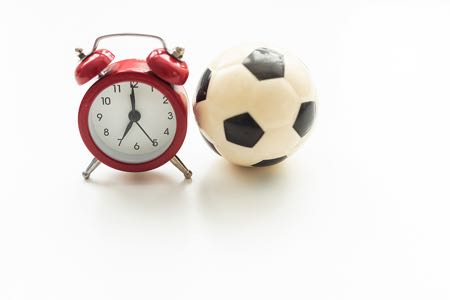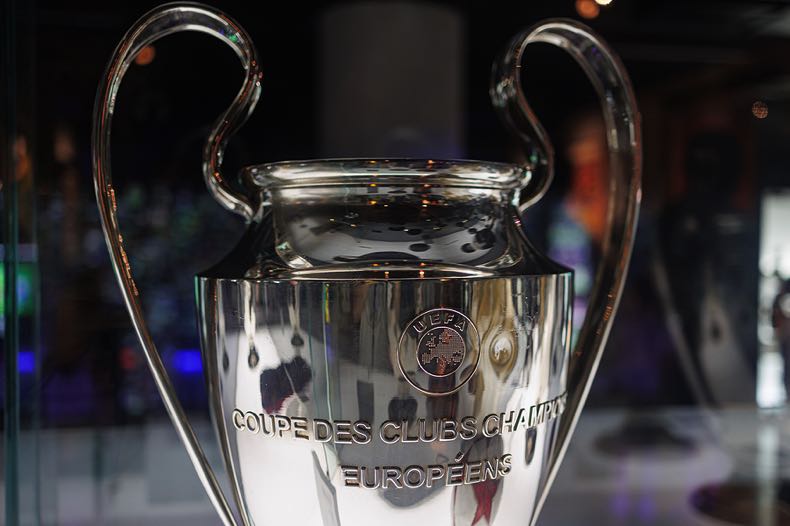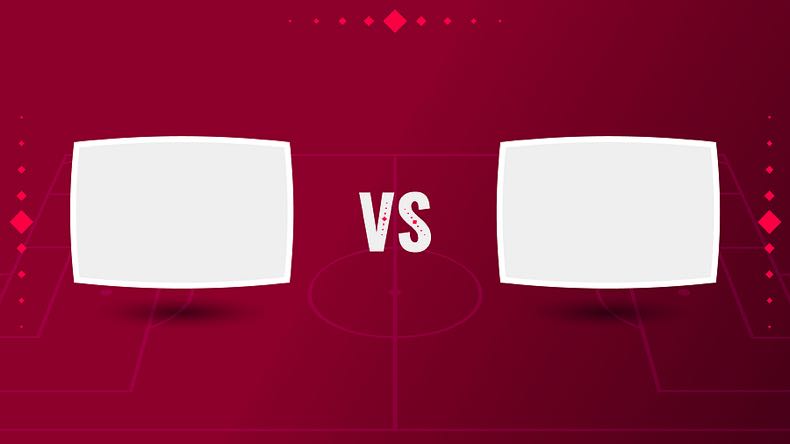 Everyone knows that a basic football match is supposed to last 90-minutes. It can’t be that simple though, can it? Well, no. In terms of how long it takes to watch a full football game, there is no single answer. Many factors come into play, not least of them the half-time interval.
Everyone knows that a basic football match is supposed to last 90-minutes. It can’t be that simple though, can it? Well, no. In terms of how long it takes to watch a full football game, there is no single answer. Many factors come into play, not least of them the half-time interval.
There is so much to think about as well as half-time such as injury time and, in some cup games, extra time and even penalty shootouts. We’re going into just how long it can take to see a football match through from start to finish.
Football Match Duration: League Games

As we know, a standard football match duration at adult professional level is 90-minutes. This is made up of two 45-minute halves, the teams swapping ends at half-time. As well as the hour and a half it takes to complete the standard time, there are other factors to consider.
Half-Time
The half-time break is a standard 15-minutes. That, in theory, now takes a football match up to 105 minutes. In truth, we always see players at the top level walking off slowly after the whistle knowing fine well they’ll have more than enough time to refresh, replenish nutrition and perhaps get a rocket from the manager. Players aren’t always so quick to get back on for the second half either.
Referees at the top end of the game are very strict about getting games to start on time, but are much more lenient about starting the second half after a supposed 15-minute break. In truth then, a half-time break is almost always more than 15 minutes. The interval could be officially extended in the future anyway which is something worth thinking about.
Injury Time
Injury time, better known as ‘time added on’ or ‘stoppage time’, covers the time supposedly lost in the game to the ball being out of play or the game being stopped. Most stoppages occur because of injuries, but also for the referee to book or send off players, for the teams to reset after a goal is scored (and celebrated) and for substitutions to be made among other things.
One of the biggest bugbears for modern football fans is that there is no official clock, which therefore cannot be stopped. This remains controversial. In this sport, the referee adds up the time he or she needs to add on when they have stopped the game. They then add that on to the time played at the end of each half.
The referee, shortly before half-time and before the final whistle is due, will signal to the fourth official how much time is to be added on as a minimum. The fourth official signals to the crowd via a lit sign, while the stadium announcer will also call the number. If a ‘3’ is shown, then it means there will be a minimum of 3 minutes added time to that half. If more incidents happen, this time can be extended and the crowd will be left in the dark as to how long is truly to be played. This will always be frustrating for the paying public and the players.
A clock, stopped each time the game is halted, would be better and that is almost universally agreed. When the clock can finally reach 90 minutes, then the next time the ball goes dead the game would end. As of now, it remains up to the referee and in England, stoppage time is growing as they look to halt players from wasting time and taking it out of the game.
In the past, 1-3 minutes was standard as added time at the end of a first half. Anywhere from 1-4 was standard at the end of the second half. Now, much more is being added. We regularly see 10+ minutes being added, sometimes 15 or more in total during the game. This has led to concerns for player welfare but, for us, we have to think about how long a game can last. 90 minutes plus 15 for half-time and 15 for stoppages now takes up to the 2-hour mark.
Other Factors
If you’re watching a game from home, then half-time and injury time are the two main factors. If you’re watching in person there will always be much more to consider. Assuming you want to be in your seat at least 5 minutes before kick-off and applaud the teams off at the end, then you are adding around 10 minutes either side of the game. For a 3pm kick-off, being in your seat at 2.55, watching 90 minutes plus half-time and injury time and then seeing the teams off can mean 2 hours 10 minutes, meaning not leaving until 5.05pm.
None of this time includes getting into and out of the stadium or travel time. Football can mean a commitment of several hours when attending in person. Even when watching at home, you may want to see the build-up and catch the post-match interviews. Two hours is probably a bear minimum commitment for a 90-minute league game.
Football Match Duration: Knockout Games

League matches and ‘group’ games, such as in the Euros, the World Cup or the Champions League, offer points for winning and drawing and therefore 90 minutes is enough. When we need to find a winner, such as in cup games or competition knockout phases, more time is often needed. Some cup games are just 90 minutes long as they may involve a replay after a draw.
Some these days last 90 minutes plus a penalty shootout, while most cup games involve 90 minutes plus the possibility of extra time. Knockout games come with all the same time factors mentioned above for league games – half-time and stoppage time, with extra-time and penalties being big further delays to the conclusion of games.
Extra-Time
If a cup or knockout game is drawn after 90 minutes plus stoppage time, then more time is needed. Most such games go to ‘extra time’, which is 30 minutes more game time played via two 15-minute halves. Going into extra time means another coin toss to determine who kicks off and which way the teams face in the first half of extra time.
It also means more injury time at the end of that half, a mini half-time for the teams to turn around and then more injury time at the end of the second half. A 30-minute extra-time period can, in truth, last 40 minutes or more. The end of extra-time on an 8pm kick-off may not come until around 10.45pm. It may not end there either!
Penalty Shootouts
If there is still no winner at the end of extra-time, then a penalty shootout may be required. The players are allowed to rest and rehydrate while they and their managers decide the order in which their players will take penalties. Another coin toss takes place to decide who kicks first and at which end, before each nominated player takes their sweet time to move from the centre circle up to the penalty box to take their kick.
A shootout can be over in five kicks in theory, but may last much longer, perhaps 20+. We can add around 20 minutes on again, but sometimes more. If the game in question was a final, you can take into account ceremonies and lifting the trophy etc. Cup games going into extra-time and penalties can comfortably last more than 3 hours.
